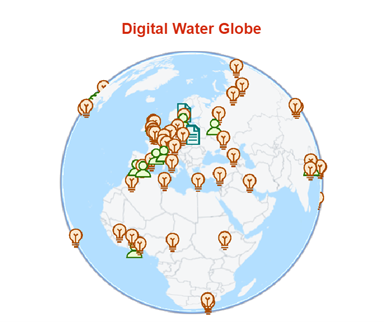IAHS News
Passing of Malin Falkenmark
It is with great sadness that we have learned of the passing of Professor Malin Falkenmark. She is best known for her long-standing work and expertise on the sustainable use of water resources to meet human and ecosystem needs. Her work is characterized by pioneering integration of both natural- and social-science approaches in global perspectives. She is particularly known for developing the Falkenmark Water Stress Indicator, concepts of Blue and Green water and Comparative hydrology.
She has had a long relationship with IAHS including receiving the IAHS-UNESCO-WMO International Hydrology Prize in 1998 https://iahs.info/About-IAHS/Competition--Events/International-Hydrology-Prize/International-Hydrology-Prize-Winners/MFalkenmark/. In 2022, inspired by her teaching and long contribution to our sector, IAHS launched a new award in her honour aimed at the best PhD thesis from a financially disadvantaged country https://iahs.info/About-IAHS/Competition--Events/Falkenmark-Award/.
The Stockholm Resilience Centre have written an obituary providing much more information https://www.stockholmresilience.org/news--events/general-news/2023-12-06-malin-falkenmark-water-pioneer-and-academic-mother-of-water-research-has-passed.html.
Congratulations to the HELPING Theme Leaders!
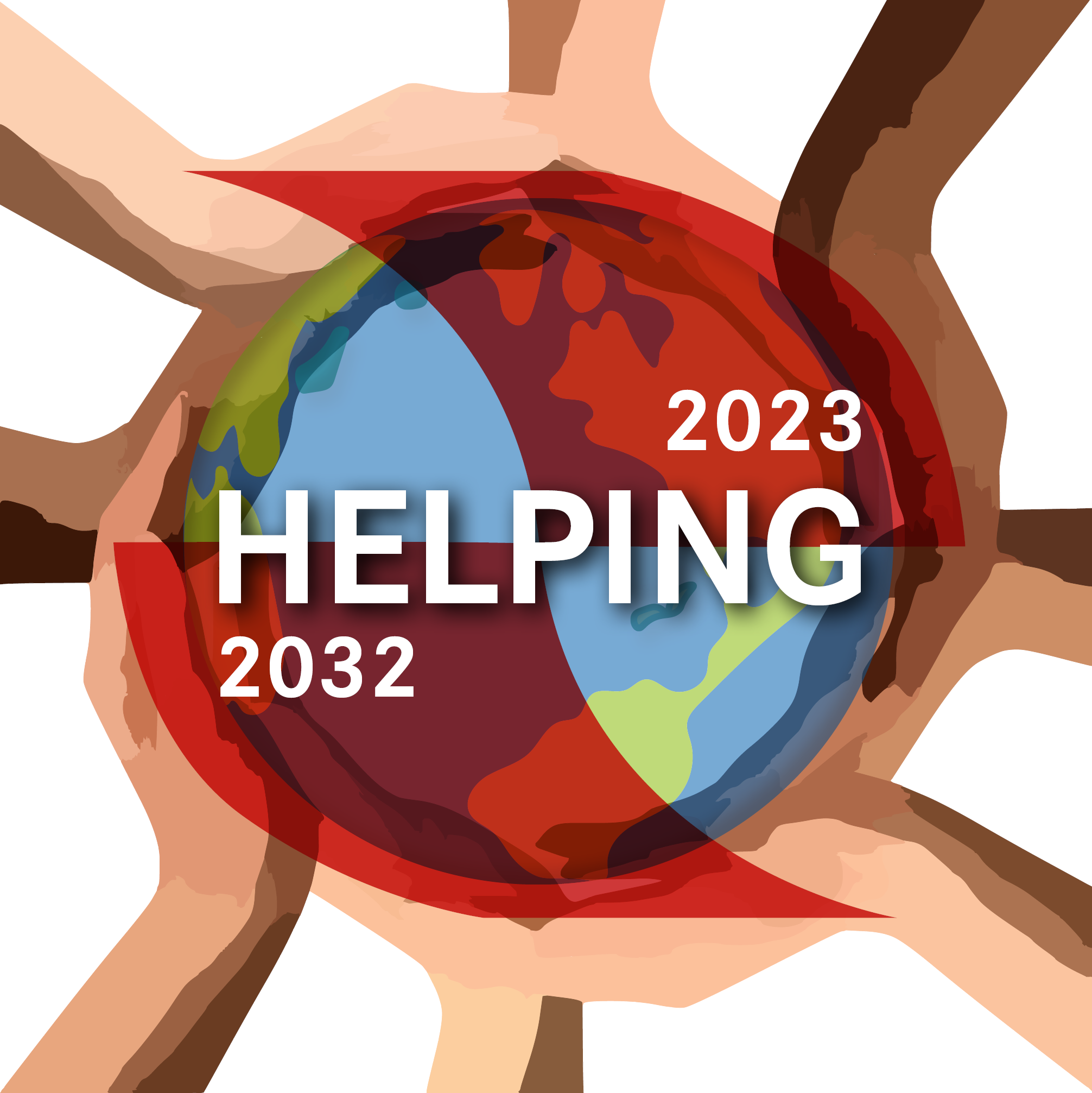
Three Theme Leaders are selected to lead the clusters of Working Groups during the initial period of the Science for Solutions decade HELPING. Currently, HELPING has consolidated into 25 Working Groups with 6-140 participants each (42 on average) to which members can still sign up.
The IAHS management team has now evaluated the candidates who applied as Theme Leaders, who will help organise the new Science for Solutions decade HELPING. We are happy and grateful to announce the following volunteers who will serve the IAHS community in leading this initial phase of the decade.
Theme 1: “HELPING with global to local interactions” (14 Working Groups)
Prof. Justin Sheffield; Head of the School of Geography and Environmental Science at the University of Southampton, UK.
Justin has more than 30 years of experience in research, applications, and leadership across a diversity of hydrological topics, from fundamental understanding of processes, including under climate change, water resources assessment and management, and the science and applications of the water-energy-food nexus. He has carried out this research at global, regional and local scale, including working directly with communities, and has worked on understanding scaling issues, cross-scale interactions and data representation that would be relevant to this theme. He has extensive experience in working with, generating, and disseminating data and models across these scales.
Moreover, he has substantial experience in dealing with capacity development and co-creation with people in financially disadvantaged countries. He has developed networks of researchers and practitioners to provide opportunities for collaboration, employment and learning beyond the lifetime of single projects.
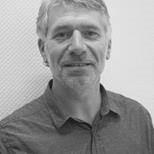
Justin Sheffield - University of Southampton
"In this position, I will leverage my experience to lead the theme over the next 2 years such that it develops into a vibrant and active programme, and is in a good position for the next 2 years under the following theme leader. Moreover, I will apply as flat a management structure as possible, to provide early career researchers experience in leadership", says Prof. Justin Sheffield.
Theme 2: “HELPING with holistic solutions for water security” (8 Working Groups)
Dr Ana Mijic; Director of the Centre for Systems Engineering and Innovation & Reader in Water Systems Integration at Imperial College, London, UK.
Ana is leading and supporting a broad and interdisciplinary research group, working across multiple aspects of water systems integration and systems modelling. She is a lead author for the “Coevolution and Prediction of Coupled Human-Water Systems: A Synthesis of Change in Hydrology and Society” in the IAHS Panta Rhei Synthesis Book that will be published in 2023.
Ana applies systems approaches to water management, and has been working on novel methods and tools for integration and coordination of interventions for both managing the high and low flows and water quality. Ana has been conducting academic research for ten years and has been involved in water management research in the UK, India, South Africa and Malaysia, among others. She has worked on the integration of water and energy systems, water and planning systems as well as Nature-Based Solutions.
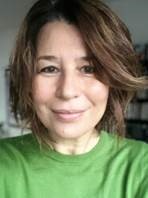
Ana Mijic - Imperial College, London
"As a Theme Leader, I will create a shared perspective based on the topics of individual Working Groups (WG). This will enable the WG leaders to see their role within the theme, but also to find other WG that they would potentially like to collaborate with”, says Dr Ana Mijic, and continues: “I will make sure that there is a process how to communicate findings from the Working Groups, not only by them reporting to the Theme Leader, but also by creating forums where groups can communicate between themselves, particularly if topics of their research are complementary. As such, I will help shaping the narrative and integrating findings from Theme 2 WGs."
Theme 3: “Theme 3 HELPING with cross-cutting goals” (3 Working Groups)
Dr. Adeyemi Olusola; Assistant Professor, York University, Canada.
Adeyemi is a physical geographer by training who has worked across diverse geographical contexts from Nigeria to South Africa, and now in Canada. This unique perspective enables him to comprehend water-related issues through a global lens, bridging the divide between the Global North and South. Adeyemi is experienced in analysing extreme events, using trend analysis, climate model data and remote sensing. Recently he has also engaged in indigenous people’s perception of rivers. His history with IAHS includes participating in UPH and STAHY meetings.
Theme 3 is a bit different to the other two Themes as it is more focused on support than on science and, moreover, this theme is small with only three WGs. However, these WGs are important in boosting the other Themes and contributing with policy aspects, science communication and co-creation approaches for engaging with local people.

Adeyemi Olusola - York University, Canada
"My unwavering passion for all aspects of water, including its intricate issues, security challenges, and extreme conditions, drives my aspiration to contribute significantly to this crucial cause of HELPING", says Dr. Adeyemi Olusola, and continues: “I bring patience, trustworthiness, and an unwavering commitment to the principles of equity, diversity, and inclusivity. I am steadfast in my belief that regardless of race, gender, colour, or beliefs, fostering an environment of inclusivity is paramount. I am committed to creating spaces within my leadership where vibrant working groups and clusters can thrive, enabling open and productive discussions.”
Read more about the Science for Solutions decade HELPING and sign up to be included in Working Groups HERE!
Obituary Mervyn Peart
It is with great sadness that we report the unexpected passing of Mervyn Peart on September 15th 2023 at his home in Scotland, two weeks short of his 69th birthday. Mervyn will be known to many longer-term ICCE members, since he was a regular participant in ICCE Symposia and Workshops over a period of nearly 30 years extending from the mid-1980s (Albuquerque, USA) through to 2012 (Banff, Canada and Chengdu, China). As such he must rank as one of the most prolific ICCE members in attending its meetings and contributing papers to the associated ‘Red Books’.
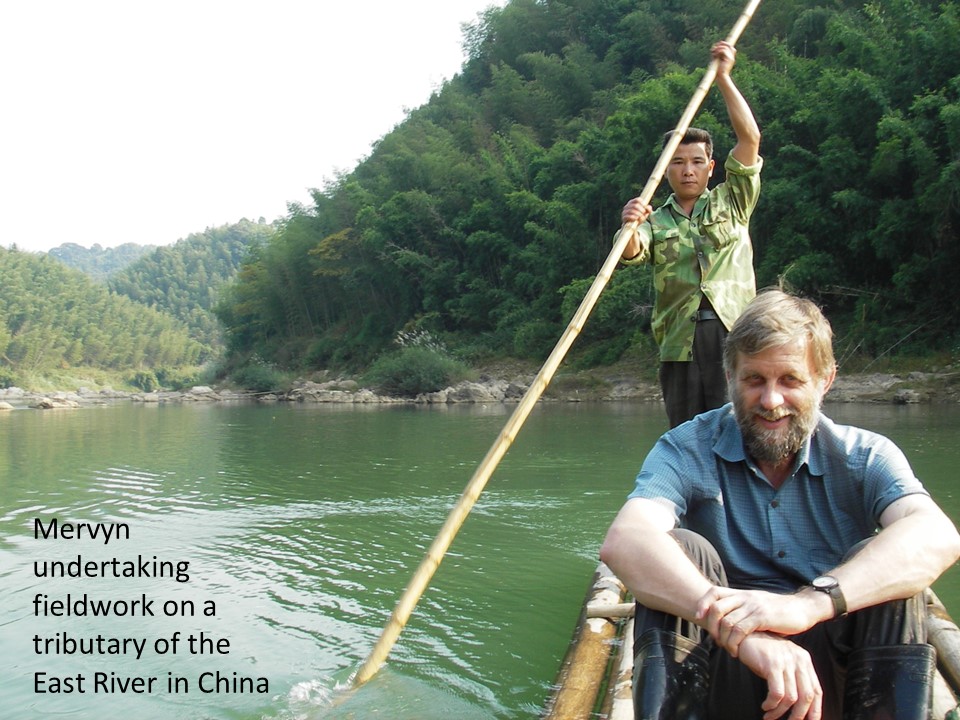
Please see the IAHS website for the full obituary written by Des Walling and Lincoln Fok and link to the memoriam website link.
Phishing or suspicious emails or texts claiming to be from IAHS

Have you received an email or text (SMS) requesting financial assistance or personal help for an IAHS officer? Is someone asking about your IAHS account, email, phone number, password, or payment method? If so, it probably did not come from us.
We will never ask you to enter your personal information in a text or email. This includes:
Credit or debit card numbers
Bank account details
IAHS passwords.
Please, ignore emails and texts that are not specific or expected. If the email or text links to an URL that you don't recognise, do not tap or click it. If you did already, do not enter any information on the website that opened.
Scammers can’t get information from you unless you give it to them. So don’t click any links in the messages or reply to them.
Please forward any suspicious emails to [email protected] so that we can report the phishing attack to the police.
Open Call for Co-Editors for the IAHS Digital Water Globe
Engage and take lead of this new digital innovation connecting IAHS members!
The Digital Water Globe is open for everyone to easily explore and find recent advances in hydrological sciences. The tool gives visibility to both published and unpublished findings, as long as it is evidence-based. It can hold action-oriented key-messages to stakeholders, as well as scientific synthesis on specific processes in the hydrosphere. It is a common ground to share and search scientific information, using site location or keywords.
Background
The digital revolution is accelerating and the past pandemic induced both constraints and innovations. To coincide with the IAHS centenary in 2022, the IAHS Bureau decided to develop a digital water globe (DWG), which aimed to stimulate and facilitate engagement, interactions, and dialogues between IAHS scientists and stakeholders, such as other experts, practitioners, media, and citizens. The development uses state-of-the-art technology in web visualisation to share cutting-edge hydrological research in case studies and datasets from all IAHS members as well as IAHS scientific publications.
The DWG enables
- Global graphical display of case studies, people, publications and data.
- Search and find functions for targeted scientific achievements (based on keywords and filtering).
- Opportunity for visibility and scientific outreach.
- Ability to link research groups and foster scientific collaboration.
- Framework for displaying and linking projects contributing to IAHS Commissions and Initiatives (e.g. UPH, Committees, Working Groups, and Scientific decades - PUB, Panta Rhei, HELPING).
- Evolution and innovation over time to provide an on-going platform and archive.
Leadership
To ensure DWG progress for continuous successful user uptake and impact, we are looking to appoint two DWG Co-Editors who will be supported by a team of Associate Editors and a Steering group. The DWG Co-Editors will be appointed for two years initially and are responsible for:
- Promoting the DWG within IAHS and to other water stakeholders.
- Attracting content to the DWG.
- Guiding the DWG Associate Editors.
- Reporting annually on the DWG to IAHS Bureau and the DWG Steering Group.
To be considered as a potential DWG Co-Editor, please complete this Google Form (now closed) before 17 November 2023. If you cannot access the online Google form, please contact the IAHS office on [email protected]. Each applicant will be contacted directly via email by the IAHS office and the following documents will be requested:
- A covering letter no longer than 1 page, including the names and email addresses of two contactable referees.
- A resume no longer than 2 pages.
Once all applications have been received, the call will be closed and the IAHS management team will evaluate the applications based on documented leadership skills, scientific knowledge in the field, experience in community management, and personal engagement / qualities. The appointments will be announced in December.
Good luck!
HELPING Working Group workshops on 2 & 9 November 2023
The vision and scope of the Science for Solution decade is now crystallising after intense engagement within the IAHS community during this first year. You can follow the progress of the strategic planning (here). The next step is to kick-off the working groups to get into action!
Thank you to everyone who has signed up to the Working Groups for the Science for Solutions HELPING decade. Applications are still being received – go to https://iahs.info/Initiatives/Topic-for-the-Next-IAHS-decade/helping-working-groups/ and sign up to the working group of your choice via the website link (or contact the IAHS secretariat for assistance if you cannot access Google forms).
Currently, we are encouraging the Working Group leaders to be in touch with the people who have already signed up to their Working Group this month, to further iterate on scope and organisation of the collaborative work they foresee.
To share these actions with the full HELPING community, there will be two online meetings Thursday 2 and 9 November (at 13-16 CET). We expect 3-hr meetings where each working group leader (or another appointed person) present their idea for 2 minutes (max 2 ppt slides) followed by comments and questions from the audience. The presentations will be organised in the Themes and follow the structure of already identified goals (see here: https://iahs.info/Initiatives/Topic-for-the-Next-IAHS-decade/helping-working-groups/). Thereafter, time will be given for each Working Group to elaborate a more detailed workplan in parallel discussions (separate break-out in virtual rooms).
A poll link will be shared via the Working Group leaders soon and a Zoom link will be shared via the Working Group leaders later this month. Note the two days are the same so you can attend one or both.
AGENDA for both 2 and 9 November
13.00 – 13.10 CET Introduction to the Science for Solution decade HELPING - content and procedures (Berit Arheimer)
13.10 - 13.40 CET Theme 1: HELPING with global and local interactions (“2 min of madness”-presentations)
13.40 – 13.55 CET Open discussion on Theme 1 focus and goals
13.55 – 14.00 CET Sanity break
14.00 – 14.25 CET Theme 2: HELPING with holistic solutions for water security (“2 min of madness”-presentations)
14.25 – 14.40 CET Open discussion on Theme 2 focus and goals
14.40 – 14.55 CET Theme 3: HELPING with cross-cutting goals (“2 min of madness”-presentations)
14.55 – 15.10 CET Open discussion on Theme 3 focus and goals
15.10 – 15.15 CET Sanity break
15.15 – 15.45 CET Discussion in break-out groups for each WG (split audience into parallel rooms)
15.45 – 16.00 CET Reunion in plenary for feedback and open discussion on way forward.
Note that it is up to each working group to agree on activities, deliverables, and time-plan with participants. Some working groups may have a very specific aim and last for short time – while others may be more general and evolve over the full decade, using a living planning process.
Moreover, we have started to formulate an opinion paper to launch the vision of the Science for Solution decade HELPING in HSJ.
Looking forward to seeing you soon online!
Organisation of the 3rd Decade
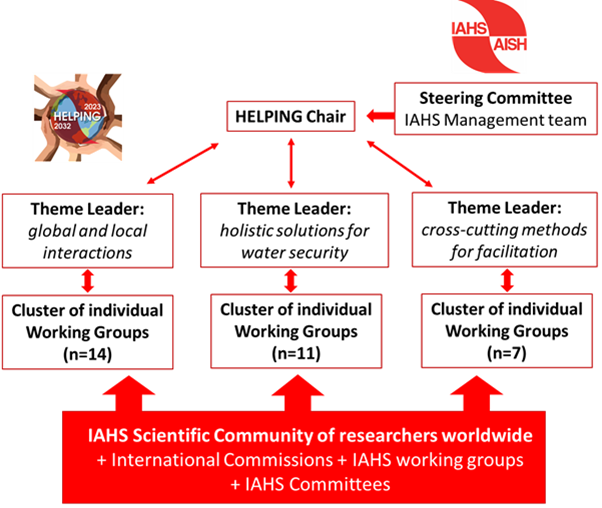
STAHY 2023 registration extended to October 20th
Registration for STAHY 2023 is open! We have extended the registration deadline to 20 October. All presenters MUST register by this deadline, or they risk losing their place in the program.
STAHY 2023 PROGRAM
We are pleased to share you with the full STAHY 2023 program. The program is also posted to the STAHY 2023 website. Presenting authors were informed of their place in the program and presentation instructions on 6 October. You can also find presenter information posted to the STAHY 2023 website.
In addition to the fascinating contributions of presentations from our community, please take note of our invited speakers:
- Professor Ana Barros, University of Illinois at Urbana-Champaign
- Dr. Corrine Bowers, Stanford University and U.S. Geological Survey
- Professor Jennifer Dy, Northeastern University
- Dr. Grey Nearing, Google
- Dr. Karen Ryberg, U.S. Geological Survey
And the Early Career representatives to the International Commission on Statistical Hydrology (ICSH) have organized three excellent instructors for the Early Career Workshop, which will be offered on Wednesday, 8 November. Our instructors will be:
- Professor Auroop Ganguly, Northeastern University, who will describe the challenges associated with hydrologic data, their implications for domain-aware high-performance computing, and how next-generation artificial intelligence may be able to provide solutions and where further developments may be necessary.
- Professor Richard Vogel, Tufts University, who will discuss the theoretical implications of developing datasets with high spatial and temporal resolution and offer practical solutions for dealing with these statistical issues.
- Dr. Grey Nearing, Google, who will share perspectives on the future of hydrology, artificial intelligence, and machine learning and discuss potential career paths at the intersection of hydrology and artificial intelligence.
The schedule is packed but be sure to leave time on either end of the schedule to explore Boston. Northeastern University is walkable to the Boston Symphony Orchestra, Fenway Park, the Boston Public Library, the Boston Common, the Boston Marathon Finish Line (permanently painted on the street), and many other points of interests – as well as fantastic dining options.
Please do not hesitate to reach out to [email protected] with questions.
Thank you for helping to make STAHY 2023 such a success with your presence and contribution! We look forward to welcoming you in Boston.
Very kindly,
Stacey Archfield, U.S. Geological Survey
Tison and Falkenmark Awards - Call for Nominations
Nominations are now being accepted for the IAHS Tison and Falkenmark awards.
The IAHS Tison Award
Established in 1982, aims to promote excellence in research by young hydrologists. The Award will be granted for an outstanding paper published by IAHS in a period of two years previous to the deadline for nominations. More information, including the list of previous awards, is available here.
The following criteria are valid:
- Candidates for the Award must be under 41 years of age at the time their paper was accepted for publication.
- The Award will consist of a citation in the name of L.J. Tison, an amount of US $1,000 and a free subscription to HSJ for one year. If the successful paper is jointly authored by eligible (age) authors, the monetary award will be divided equally between authors.
- The Award will be announced annually and will be presented in a public ceremony, normally during either an IUGG/IAHS General Assembly or an IAHS Scientific Assembly.
- Nominations for the Tison Award may be submitted by the National Committees of IAHS, officers of the IAHS Bureau, officers of the Commissions, HSJ editorial board members, convenors of IAHS symposia or editors of proceedings.
- Nominations may not be submitted directly by an author or co-author, but may be submitted through one of the aforementioned individuals. The nominations should be sent directly to the Secretary General of IAHS and should contain a reasoned argumentation and noted validation of the candidate’s age.
- Previous awardees are not eligible for nomination.
- The Award Committee may not recommend an Award in any one year if none of the papers submitted is of sufficiently high standard.
The IAHS Falkenmark Award was estabilished in 2022 and is for best PhD thesis:
- Recognises outstanding contributions to hydrological understanding of water scarcity and water supply.
- Is granted every year.
- Highlights the importance of capacity building and knowledge/data gathering in financially disadvantaged countries.
Eligible nominees
- Grew up in a financially disadvantaged country.
- Performed the PhD work in one or more financially disadvantaged countries.
- Holds a PhD certificate, which is dated within the last 2 years.
Nominations
The Evaluation Committee consists of one IAHS officer, the Chair of the Committee for Africa and invited experts depending on nominees topics
Can be made by IAHS members
Must be forwarded to the IAHS Secretary General no later than 31 December of the previous year
Must consist of:
- the nominee's CV (max. 2 pages, A4 format)
- copy of PhD certificate
- max 1-page nomination letter, with one sentence citation (max. 200 characters) stating why the nominee is the most qualified person to receive the Falkenmark Award
- pdf of the PhD thesis, in English or supported by papers in English published in international scientific journals.
Nominations for both of the awards should be received by the Secretary General, Jean-Marie Kileshye Onema at [email protected], no later than 31 December 2023.
International Hydrology Prize – Call for nominations
The International Hydrology Prize is awarded annually by IAHS, with UNESCO and WMO, to two people who have made an outstanding contribution to hydrological science. Nominations for the Prize are made by National Committees to IAHS, National Committees to the UNESCO-IHP or National Hydrological Advisors to the WMO, and forwarded to the Secretary General of IAHS for consideration by the Nomination Committee. The Committee consists of the President and a Vice-President of IAHS, as well as representatives from UNESCO and WMO.
Two medals are awarded under the International Hydrology Prize: the Dooge medal and the Volker medal. Both medals are intended to distinguish outstanding achievements by hydrological scientists but with a different focus. The Dooge medal is aimed at fundamental contributions to the science of hydrology, whereas the Volker medal is aimed at outstanding applications of hydrological science for the benefit of society at large.
The following applies to both the Dooge and Volker medals:
The International Hydrology Prize shall be awarded to persons who have made outstanding contributions to hydrology such as confers on the candidate universal recognition of his or her international stature.
The contribution should have an identifiable international dimension extending beyond both the country of normal work and the specific field of interest of the candidate.
The medals may be awarded to hydrologists of long international standing or to younger but active hydrologists who exhibit qualities of international leadership in the science or practice of hydrology.
An active involvement in the work of IAHS and other international organisations in the field of hydrology should be counted as an advantage.
Specific considerations for the Dooge medal:
The Dooge medal is particularly intended for hydrologists who have demonstrated scientific excellence, and have made fundamental contributions to the science of hydrology as evidenced by publications in the international scientific literature and other evidence of high standard.
Preference should be given to candidates who have recently exhibited outstanding international leadership in the science of hydrology.
Specific considerations for the Volker medal:
The Volker medal is dedicated for hydrologists who have applied their research and hydrological expertise to the benefit of society, addressing issues of public interest and development.
Applications of hydrology to the benefit of developing countries would count as an advantage.
Preference should be given to candidates who have contributed through both scientific and practical work, and who have made outstanding contributions to the Hydrology community as demonstrated by active involvement in the work of IAHS or other international hydrological associations.
Nomination format and procedure:
Nominations should be received by the Secretary General of IAHS no later than 31 December 2023 – Jean-Marie Kileshye Onema [email protected] – and consist of:
- a (max. 2, pages A4 format) nomination letter signed by a National Representative to IAHS, the President of a national committee of UNESCO-IHP, or a National Hydrological Advisor to the WMO, with one sentence citation (max. 200 characters), and stating why the nominee is the most qualified person to receive the Volker or Dooge medal, paying attention to the medal's dedication specified above
- the nominee’s CV (max. 3 pages, A4 format) with an emphasis on the contribution to hydrological science and international scientific cooperation, providing clear information on the main criteria used for the evaluation and the specific considerations mentioned above
- a list of the major scientific publications (max. 2 pages, A4 format).
Nominations are expected from the world diversity, and equally for female and male candidates.
Evaluation criteria:
a) Outstanding contributions to hydrology evidenced by universal recognition of his or her international stature.
b) Identifiable contributions with international dimensions extending beyond both the country of normal work and the specific field of interest of the candidate.
c) For senior candidates proof of Hydrologists activities of long international standing, or for younger candidates, proof of being active hydrologists with qualities of international leadership in the science or practice of hydrology.
d) Active involvement in the work of IAHS and other international organizations in the field of hydrology is counted as an advantage.
e) Application of the hydrological research performed and the use of his/her expertise to the benefit of society and addressing issues of public interest and development.
f) Applications of hydrology to the benefit of developing countries counts as an advantage.

